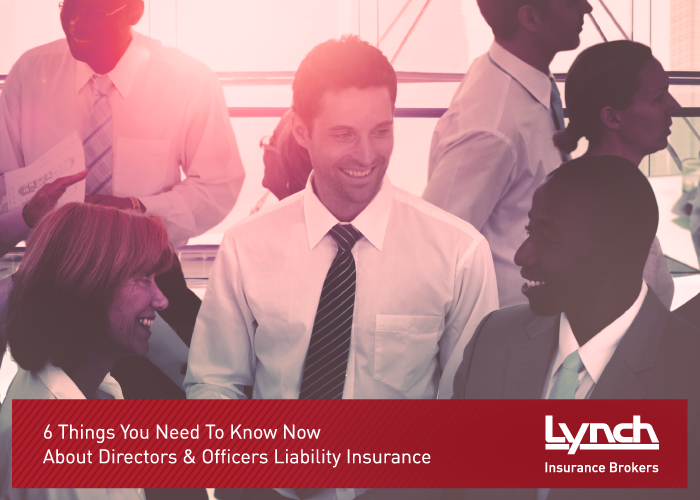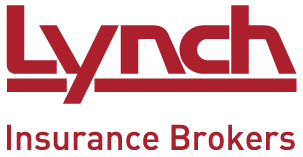6 Things You Need To Know Now About Directors & Officers Liability Insurance

The Problem/Solution in Brief
New Legislation brings emerging risk for all Directors & Officers in Barbados. The duties of your company and its Board of Directors have increased under the new legislative environment including the Safety & Health at Work Act 2005, Occupational Pensions Benefits Act Cap. 350B and Employment Rights Legislation. Any negligence or non-compliance, even if unintentional, can result in legal action, fines or imprisonment for you as a Director. Should you not have the appropriate level of cover in place, you will have to personally fund the claim.
Directors & Officers (D&O) insurance serves to protect you as a Director and ultimately protect your personal assets. Directors & Officers (D&O) insurance also serves to protect the company and its bottom line, by reimbursing legal defence costs. Below are some frequently asked questions and answers that will help you understand the importance and details of this type of liability insurance policy.
What Does Directors & Officers Liability Insurance Include?
The policy is intended to protect directors and officers (and defined managers) against the consequences of actual or alleged wrongful conduct when they are acting as company executives in the scope of their duties.
Directors and Officers (D&O) liability policies provide three distinct coverages. The policy pays for defence costs, any financial losses and court awards up to the limits of the policy.
The first section of coverage (known as Side A) is the liability coverage for individual directors and officers of the organization. The second section (known as Side B) is corporate reimbursement coverage, which reimburses the organization for any payments that it is legally obligated or permitted to make in indemnifying its directors and officers for liability claims. The third section (known as Side C), commonly referred to as ‘entity securities coverage’, is coverage for the organization for claims relating to the securities of the organization.
Who Needs Directors & Officers Liability Insurance?
A common misconception is that Directors and Officers liability insurance is only required by large or public corporations with complex boards and many shareholders. This is not true; small business can encounter many of the risks that larger corporations do such as unfair dismissal, and law suits by government agencies. The principal difference, which coincidentally increases the risk, is that small businesses may not have access to an in-house compliance, legal or human resources department to support regulatory procedures and offer sound defense for the claim. Small businesses are also less likely to have the funds to support protracted legal defense of their company or directors.
If you are a director sitting on an outside board, you should also consider insisting on the coverage for your own protection. Many directors and officers volunteer their services to non-profit organizations, and can be personally named in a lawsuit against the non-profit such as alleged fraud or financial mismanagement. A number of attorneys also offer their services to several boards. If they have their own company coverage, these boards can be noted as outside directorships, but otherwise, they should insist on individual Directors and Officers liability insurance policies for each company.
What Types of Loss Scenarios Are Covered?
Claims can be brought by the company’s stakeholders whether owners, investors, lenders, employees and securities holders. Claims can also be brought by customers, consumer groups, competitors, business partners (venders and suppliers) and government enforcement/regulatory groups.
In terms of frequency, 40% of Directors and Officers claims are related to employment or human resources (HR) actions, where conduct rules or regulations were not adequately applied and enforced.
In terms of costs, shareholder or securities actions typically incur the highest damages and are on the rise with increasing shareholders’ rights.
Claims Against the Organization Can Include:
- Employment practices such as discrimination, wrongful termination and HR issues
- Failure to comply with regulations or law
- Shareholder actions
- Reporting errors and inaccurate or inadequate disclosure in company accounts
- Wrongful denial or termination of credit to any customer or client
- Violation of the anti-trust regulations or practices or unfair methods of competition
- Violation of a loan covenant
- Exorbitant dividend payments or profit sharing contributions which were made by the company
- Improper loans made to Directors or Officers
What is not Covered under Director and Officer Liability Insurance?
A Director and Officer policy does not cover intentional, fraudulent or criminal (illegal) acts of a Director or Officer. However, the policy will cover the innocent directors if they are named in the action as co-defendants.
The policy also does not cover activities more specifically covered by other policies such as errors and omissions which is covered by the Professional Indemnity policy form.
Common Exclusions to the Director and Officer Policy:
- Fraud
- Intentional non-compliant acts
- Illegal remuneration or personal profit
- Claims made under a previous policy
- Claims covered under a more specific policy form
Another point to note is Insured vs. Insured claims. The Director and Officer policy is intended to function as third-party coverage or to insure claims made against the directors and officers by outsiders or third parties. It is not intended to respond to claims by the insured directors against themselves, such as director bringing action against another director.
Couldn't My Company Indemnify Their Directors in Event of a Loss?
A common misperception is that Directors & Officers of limited liability companies can be hidden behind the veil of the incorporation. This is proven not to be the case and your personal liability is unlimited.
Companies generally have provisions within their by-laws that provide for some indemnification to their directors and officers. However, sometimes companies are financially unable to provide protection or are unwilling to do so for other internal reasons. Without corporate indemnity or insurance, directors and officers would have to rely on their own personal assets to pay for the costs of defence and any resulting settlement or judgment against them.
What Constitutes a Claim and How Is This Handled?
In brief, a Director and Officer claim includes any written demand alleging a wrongful act by a director or officer in his or her capacity as a director or officer, seeking monetary or nonmonetary damages.
The claim has to be first asserted or “made” against the insured individual during the policy period. This is why Director and Officer insurance is generally referred to as “claims made” coverage. Some Director and Officer policies also require that the claim be reported to the carrier during the same policy period. This is referred to as “claims made and reported” coverage.
Policies require reasonably prompt notice within the policy period. Failure to provide timely notice can and will result in loss of coverage.
Are You Properly Covered for Director and Officer Liability? Contact Us.
If you have concerns about your liability coverage as a director or officer of a company, or have any questions regarding this type of liability coverage, please contact our team. We would be happy to help ensure you are properly covered for Director and Officer liability.
Gregory Rose, ARM is the Chief Executive Officer of Lynch Insurance Brokers Ltd. with over eighteen years experience in the risk and insurance industry. His responsibilities include insurance broking for a number of multinational broking accounts, development of alternative risk financing structures such as captive insurers and special purpose vehicle through Lynch’s subsidiary, Lynch International and design and implementation of risk management programs for Lynch’s clients. Mr. Rose holds a Bachelor of Arts Degree from Bishop’s University, Quebec, Canada and is an Associate in Risk Management with the Insurance Institute of America.
Gregory can be contacted by telephone at 246 231-2400 or by email at gregoryrose@lynchbrokers.com
Making the next, right decision for the future of your business takes Experience + Insight + Foresight.
This is what we bring to the table.
When it comes to risk we don’t take chances.
We are your Trusted Risk Advisor.

About Lynch
Lynch Insurance Brokers Ltd. is a risk advisory and insurance services firm. Our mission is solving our client's key risk concerns and in so doing make them more successful. We are an Associate company of Marsh Ltd., and are able to leverage their international expertise and market access to deliver innovative thinking to addressing our client's risk and insurance needs.
For more information: info@lynchbrokers.com
©2014 Lynch Insurance Brokers, St. Michael, Barbados. All Rights Reserved. Lynch Insurance Brokers believes the information in this document is accurate as of its publication date; such information is subject to change without notice. Lynch Insurance Brokers acknowledges the proprietary rights of other companies to the trademarks, product names and such other intellectual property rights mentioned in this document. Except as expressly permitted, neither this documentation nor any part may be reproduced, stored in a retrieval system or transmitted in any form by any means, electronic, mechanical, printing, photocopying, recording or otherwise, without the prior permission of Lynch Insurance Brokers and/or any named intellectual property rights holders under this document.

